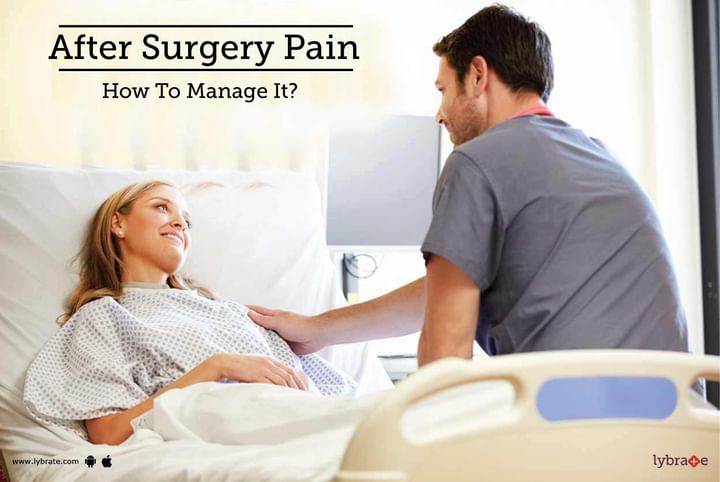After Surgery Pain - How To Manage It?
The word 'surgery' is often dreaded by most patients. Be it an invasive oral surgery or a keyhole gallbladder surgery, it does not evoke a ready "yes" in most patients. There are too many patients who are ready to be on long-term medications if they could avoid the surgery and its complications. While there could be swelling, bruising, tingling, and many other symptoms, the one feared by most is the postoperative pain. What happens after the effect of the anesthetic wears off can leave many patients in a very anxious and fearful state. The trick is to prepare oneself - not just for the surgery but for the after effects.
Before the surgery, a detailed discussion with the doctor on the following is very important:
- A complete list of medications including supplements so that the medications used during and after surgery to avoid any potential drug interactions
- Type and severity of the pain - This will help you anticipate and be prepared for the pain after the surgery.
- Pain tolerance/threshold - Letting your doctor know your tolerance levels can help them prescribe an appropriate pain killer
After the surgery, the following are some ways to cope with the pain:
- Pain killers - Don't wait for the anesthesia effect to completely wear out. Take the pain killer much before the pain starts so that the onset of pain is delayed or nullified. For severe cases, opioids may be used to manage immediate postoperative pain. However, in most cases, non-steroidal anti-inflammatories like ibuprofen are used. They may also be used up to a few days after surgery to ease the pain and inflammation, depending on the type of surgery.
- Topical creams/lotions - In cases involving skin incisions, this help reduce the pain in the skin along the incision.
- Compression stockings - In addition to reducing blood clot, they also reduce pain in the legs.
- Physiotherapy - If there is a joint involved, doing physiotherapy after surgery is extremely beneficial. In addition to reducing pain, they also help improve mobility.
- Sleep - Sufficient sleep (more than you normally would) promotes healing and helps your ability to cope with the pain.
- Heating pads and ice packs - If these are your regular remedies for pain, feel free to use them even in postsurgical pains.
- Reduce Stress - This will help you cope better with the pain and heal faster.
A given patient and a given surgery are a unique combination. No two patients will react the same way to a particular surgery. Postsurgical pain can be managed very effectively with a little planning.



+1.svg)
